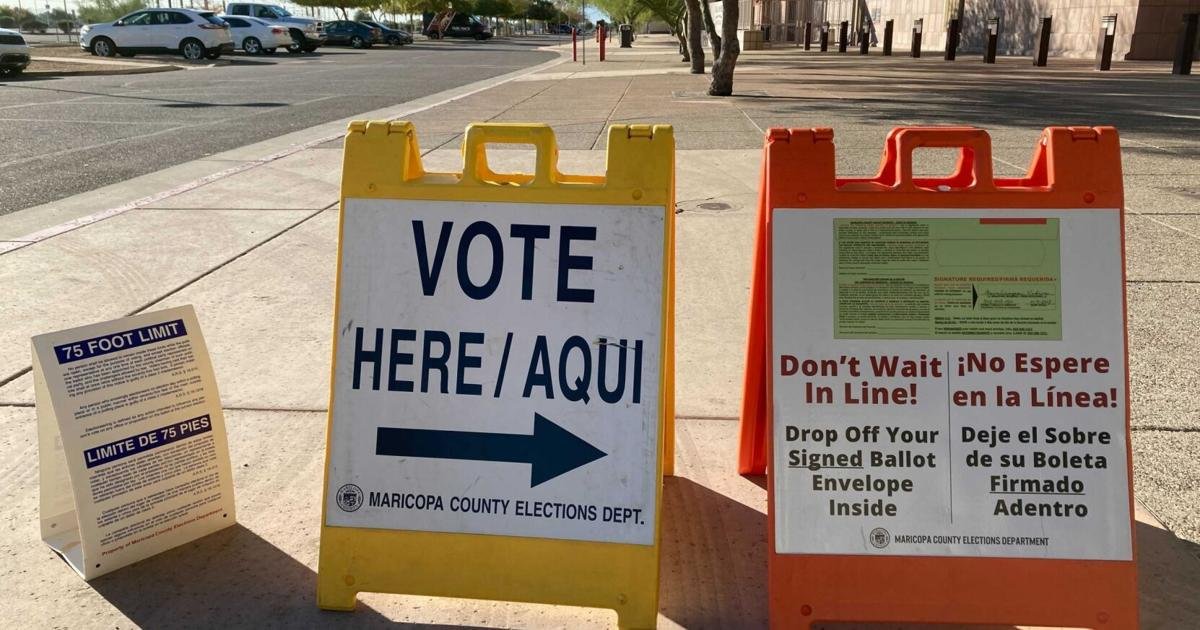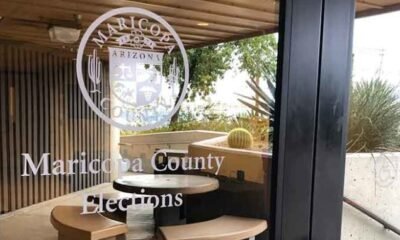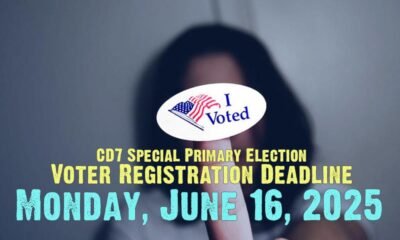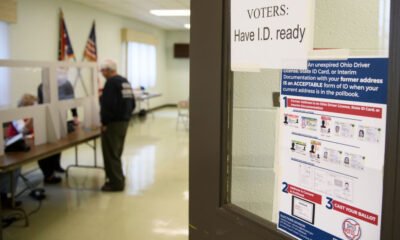Politics
Group Demands 220K Voter Registration List Without Citizenship Verification

PHOENIX — A lawsuit has emerged in Arizona, escalating tensions over voter registration practices. The Strong Communities Foundation of Arizona, which claims that noncitizens are allowed to register, urgently seeks access to a list of approximately 220,000 registered voters who purportedly failed to provide proof of citizenship.
This legal move comes just before early voting begins next week. Secretary of State Adrian Fontes, however, opposes the release of such information, asserting it may lead to harassment of these voters. He emphasizes that those identified are likely legally registered individuals, with verification issues stemming from a recently uncovered glitch. This glitch specifically affects those who obtained their driver’s licenses before 1996.
Fontes cites an Arizona Supreme Court order affirming that all individuals impacted by this glitch retain their voting rights in the upcoming election. A requirement for further proof of citizenship will only apply to future elections, per a law passed by voter initiative in 2004.
Legal representatives for the foundation counter that the Secretary of State’s rationale lacks credibility, arguing that the intent to obtain this information is not to intimidate. “Apparently, insulating themselves from embarrassment is more important to the defendants than following the law,” stated James Rogers, attorney for the American First Legal Foundation, which has ties to Republican interests.
Recent revelations have spotlighted deficiencies in the voter list maintenance system after Maricopa County Recorder Stephen Richer identified issues with the process for confirming citizenship through Motor Vehicle Division records.
Arizona laws from 1996 and 2004 stipulate that individuals need to show proof of legal presence for a driver’s license and proof of citizenship for voter registration, respectively. However, complications arose when individuals with pre-1996 licenses changed their addresses or obtained duplicates post-1996, erroneously presenting their status as compliant.
The Arizona Supreme Court has asserted the importance of not disenfranchising eligible voters due to this technical error, emphasizing the right to vote entails due process. Chief Justice Ann Scott Timmer remarked, “We are unwilling on these facts to disenfranchise voters en masse from participating in state contests.”
As the situation unfolds, conflicting statements emerge regarding the number of affected voters, with estimates fluctuating significantly. Currently, the number stands at 217,187, according to the Secretary of State’s office.
Despite their claims, Strong Communities insists they are entitled to a complete list of the affected voters. The lawsuit does not articulate a rationale for this request, asserting simply that such records are public and available without a stated motive.
In correspondence regarding the lawsuit, attorney Craig Morgan, representing the Secretary of State, acknowledged Arizona’s policy that generally allows access to public records. However, he warned that exceptional circumstances might limit this access to protect Arizonans from potential harassment.
Consequently, Morgan detailed concerns that releasing unverified information could incite harassment against voters who are erroneously challenged during the election. He pledged that the desired records would be released promptly but clarified that the timeframe would fall beyond the upcoming General Election.
Challenges to the Secretary of State’s office claim insufficient administrative burdens have been substantiated to prevent fulfilling the request. The dissenting attorneys argued that if the office has indeed compiled necessary information to quantify affected voters, they should be capable of providing the requested list.
The breakdown of the affected voters reveals a mix of political affiliations, with approximately 38% registered as Republican, 27% as Democrat, followed by independent and minor parties. Fontes attributes this demographic to the glitch primarily affecting those aged 45 and older.
Founded by former Trump adviser Stephen Miller, America First Legal remains involved in this case, advocating for a thorough inquiry into the implications of voter list management. As of now, Fontes’ office has yet to receive the formal lawsuit and no hearing date has been established.


















